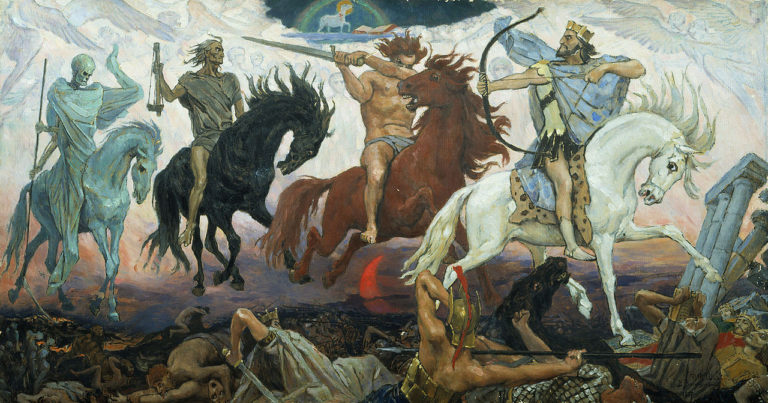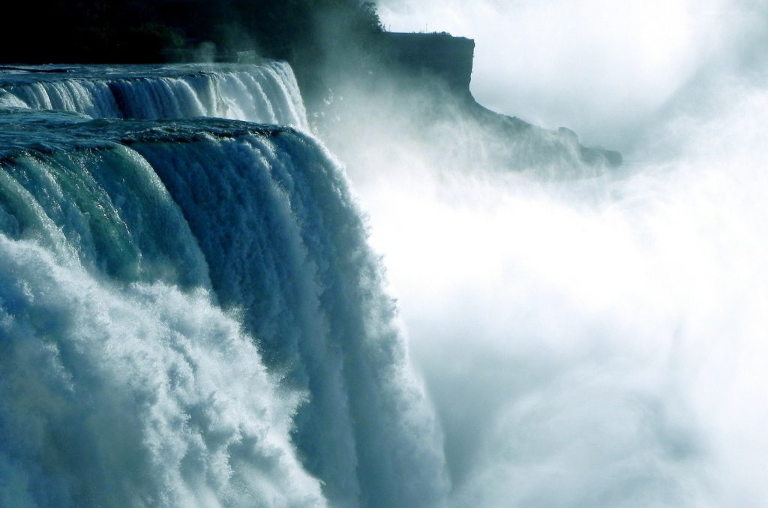Here’s the thing: there’s a COVID pandemic raging around the world, with more than half a million new cases every day (and someone dying from COVID every 7.2 seconds). But in the US, we’re suddenly in a happy little bubble where infections have fallen and people are heading to restaurants, gyms, and organizing their summer travel plans.
I was afraid this would happen—where we would make up for lost time in consuming even more in 2021 due to perceived losses to our consumer freedom (to travel, to eat out, etc.) in 2020. But I at least thought people would not try to forget the past year and pretend it never happened.
A friend joked (in gallows style) that it’s like living through a genocide and now you have to go back to ‘normal’ life. How do you do that when you see your neighbor whose husband was just recently slaughtered? ‘Oh hi, how’s your summer going?’ The losses are real, the suffering real, but with our good ol’ American optimism/future-focus/consumerism we’re off to enjoy the summer with barbecues, fireworks, and trips to whatever places offer the cheapest flights and best deals. And yes, masks, and melancholy, aren’t invited.
“I have spent the last year-plus saying ‘Stay safe, stay home,’” Lamont said. “And today, I’m telling you: get out of the damn house, come enjoy Hartford, get on a plane, visit a restaurant, go to an amazing hotel. This is a time where Connecticut is open, ready for business, we want you coming back.”*
Don’t get me wrong, it’s tempting, and a part of me wants to do this too. But then where are we?
In my last days of HBO, I watched Tenet (as I mentioned last week) and thought about writing an essay exploring the film in-depth. But there are many good essays on the questions it raises, in particular intergenerational equity—but in reverse: i.e. can future generations hurt past generations (via time travel) in order to protect themselves and the planet from our greed and shortsightedness? But there’s another important issue that is raised as well: as protagonists in this film work to stop people from the future changing the past and erasing the current generation, the protagonists never consider there’s a case to be made for changing the present (since the future ends up decimated, desertified, and flooded) and instead celebrate their pyrrhic victory of defeating future’s aggressors.
I feel like the ending (or more likely temporary ceasefire) to our COVID saga is eerily similar. The protagonists have defeated the evil King Corona (or at least driven him out from within their borders) and they can now all live happily ever after and ignore the last year and the ongoing war around them.** But the war rages on, people are still dying in droves, and the bigger underlying syndrome that gave rise to the COVID crisis has been completely ignored, guaranteeing more pandemics and other converging crises in the coming years (barring time travelers erasing this timeline).
And yet, this doesn’t come as a surprise. Many in the sustainability community worried this would be the exact outcome: heading back to business as usual (even if we hoped and organized for better).
Discussing the Future
This past week, a friend convened a physicist, two economists, and me to discuss where climate change was going to bring us in the next 50 years.
What’s interesting is that while there were a variety of perspectives—we should prioritize adaptation, we should decentralize responses, we should focus on no-regrets policies that achieve both sustainability and resilience—no one argued the fact that a disastrous amount of climate change was already baked into the future (i.e. temperatures will keep rising for decades even if all emissions ceased today). Sure, there was disagreement about the number of decades or centuries before the really nasty stuff starts happening (like the collapse of ice sheets, desertification of entire regions, etc.). But not really any argument on whether we can stop all that. Or that lots of people are going to die. That struck me as really sad. (It’s one thing when I say it, it’s another when I hear it from more moderate voices!)
The window may be so tightly shut to address converging ecological crises (because let’s not forget about all the other ones—like plastification of the biosphere, disrupted nitrogen cycles, biodiversity loss, etc.***) that soon we cannot even pretend otherwise—even in the sustainability community. And I’m not sure what that’ll mean. More toilet paper hoarding (on the well-off individual scale) and resource hoarding on the well-off national and regional scale (perhaps framed as decentralized adaptation)? A complete breakdown in international climate cooperation? A radicalization of politics as borders close and countries try to protect themselves from the pulsing hordes of climate refugees? Certainly the end of luxury travel and many other luxuries that we’ve come to take as entitlements (at least for the vast majority—the richest will still probably have their private jets). Plus a hearty helping of anger and heightened polarization because of all this.

Recipe for the Future: Start with a brine broth (seasoned with a generous dash of microplastic), add in 9 billion people, even more beef, chicken, and pork, and raise the heat to high. Cook over vast forests of wood for the most intense flavor. Then serve to whoever remains to eat it. (Image by roymungez1 from Pixabay.)
Generic Uplifting Section
Here’s where convention dictates that I insert an uplifting section that sustains hope. But I don’t think I can. We have caused unforgivable damage to Gaia, to people, to countless species and the minimally understood web of interdependencies, and soon it’ll be time to pay the piper. I tripped over a video of a “planetary conversation” between philosophers Giovanbattista Tusa and Srećko Horvat this week—while reading an essay on Tenet actually—and Tusa, the host, made a statement that sums it all up nicely: “Western modernity itself is born out of apocalypse: the conquest of the Americas and the holocaust of the New World.”

The Four Horsemen of the New World Apocalypse: England, Spain, France, and Portugal. Note: The fifth horseman, the Netherlands, is painting the picture (By Viktor Vasnetsov, 1887)
His guest, Horvat, goes on to remind us that apocalypse, in its original Greek, means revelation—something being unveiled, revealed. I’m not sure I agree with where he went next (something about time and clocks being at the root of the capitalist ideology), but let’s explore the first two points. Western civilization stemmed directly from an apocalypse: from Europeans’ perspectives: a revelation of a whole new world—an untouched paradise—but from Indigenous Americans’ perspective: the nearly complete destruction of their peoples, culture, and land.****
As Melissa Nelson wrote in EarthEd: Rethinking Education on a Changing Planet, there is a lot of wisdom and understanding that has come with living through that apocalypse. And it would be wise for non-indigenous peoples to engage with that wisdom (considering what’s coming)—if Native American populations are willing to share it with those who have waged such violence on them.
At the end of his remarks, Horvat suggests “Stop worrying and love the apocalypse. It’s not something that will happen but has already happened.” I do not think that is accurate. It’s also flippant. Imagine saying that to others living through an apocalypse. While the apocalypse may no longer be preventable, a friend (and the aforementioned physicist) made an excellent clarification during our discussion when the metaphor of civilization being a runaway train heading for a cliff was pulled out. He suggested instead a flotilla of ships heading toward what sounds like a massive waterfall.
Many of these ships may be tied together, using the energy of one to slow the other (or in some cases willfully racing off the waterfall as madmen have seized control). Some—perhaps the smaller ones, the wiser ones, have organized—throwing out makeshift anchors, possibly a parachute sown from passengers’ clothing to increase drag. Others are rowing against the current and perhaps even toward the shore. The force of the water may be too strong for any of this to matter but we can’t know that, and there’s a good chance some ships will stave off the inevitable.
But that’ll require commitment to this endeavor—and perhaps first, a revelation that the waterfall is looming, that we’re not safe, and that if we don’t act quickly, we will be swept over the edge.***** And I hope in that moment of clarity that comes with this near-death experience, we’ll attain a deeper revelation: that Gaia’s fate is our fate. That to devastate the land is to devastate ourselves; that we are not separate from the living Earth, but merely an aspect, and if we don’t act accordingly, at best we’ll just postpone our pending apocalypse temporarily. If we do have that revelation, there’s a chance that from the ashes of our current rapacious culture will be born an ecocentric, just, and restorative one.

Nope, that doesn’t really look survivable. Probably wiser if we try to prevent ourselves from going over. (Photo by urformat via Pixabay)
Endnotes
*The Friday May 28th episode of Marketplace on NPR was just as bad, with a segment exploring/celebrating the projected growth of consumer spending—possibly by ten percent this year and five percent next year—peppered with personal stories of increased spending plans, especially on vacation and business travel.
**Also kind of like the refugee Americans living in Canada in the world of The Handmaid’s Tale: going grocery shopping, eating, and entertaining like everything’s fine.
***All of which are moving in the wrong direction and driven on by our growing population and consumer culture and growth-obsessed economic system.
****Leaning on the modern definition of apocalypse (i.e. complete destruction of the world or damage on a catastrophic scale). But perhaps the revelation provided was that Native Americans were not alone and that the wendigo, indeed, was real and not a myth.
*****A revelation that could’ve and should’ve come as part of living through this pandemic.




